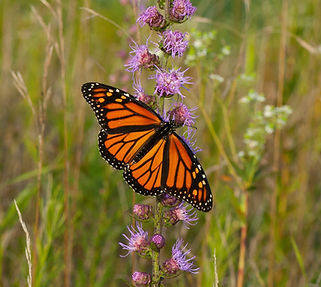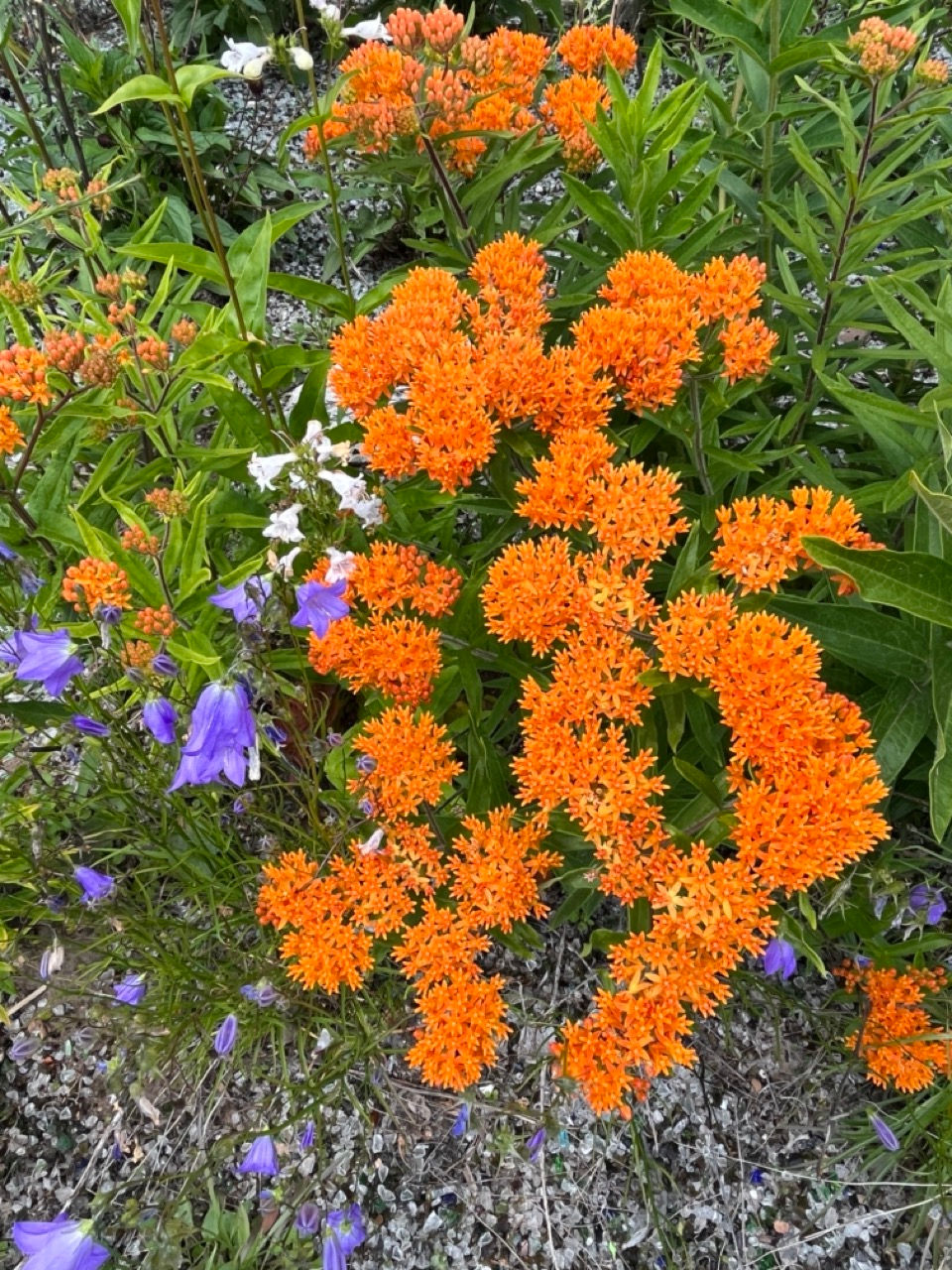Shop: Monarchs Essentials
Greenhouse open by appointment only
-
Plants available late May through October. Dates depend on growing conditions. Pickup time will be arranged when plants are ready.
-
Orders filled in the order received. Orders placed in May may not be ready until late June.
-
Out of Stock? We are growing more. Select the "Notify when in stock" button on the product page to receive an automatic email.
-
We offer wholesale rates. Please contact us if you are looking for more than 180 quarts or 15 plug flats.

Quart Pot
A deep 4" x 5" square pot is our standard. Well-developed roots help the plant establish quickly. All plants are in a quart pot unless otherwise stated.
Plug Flat
A plastic tray with 38 plants. Single-species or pre-designed kits. Economically plant larger areas. 5" deep and spaced for optimal crown growth.
Gallon Pots
Large round pots filled with shrubs or mature plants for garden showpieces.
Monarch & Milkweeds

Few butterflies are more recognizable than the dramatic orange and black Monarch. This iconic butterfly is a favorite in backyards, but migrates from as far as Canada to a few overwintering sites in California and Mexico and back again. However, the butterfly has two weaknesses. First, the caterpillars of the Monarch can only eat one type of plant: milkweeds. If there are no milkweeds at its summer homes, there can be no Monarchs. The other weakness is that its long migratory path requires food along the whole route, otherwise adults will not survive migration.
Habitat loss all along the migration route is contributing to a decline of Monarchs. In 2022, the Monarch Butterfly was listed as endangered by the International Union for the Conservation of Nature. The U.S. Fish and Wildlife Service also recently determined that listing the Monarch under the US Endangered Species Act was warranted (but precluded by higher priority listings). By planting milkweed host plants and favorite nectar plants, we can support Monarchs along their migration routes and give them support as they face larger threats such as climate change and pesticide exposure.
By the way, mosquito sprays and other backyard pesticides are harmful to Monarchs, Monarch caterpillars, and other pollinators (according to many sources, but here is an article from Michigan State University). If you want to keep butterflies, stop the spray and plant native nectar plants and milkweeds. Our best plants for Monarchs are listed below.








































